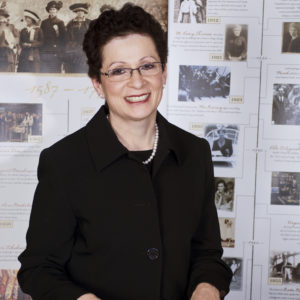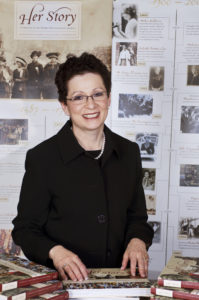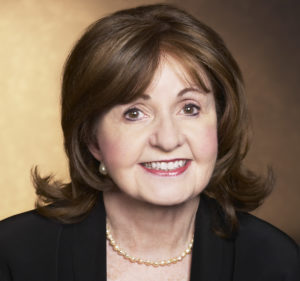Civil War Women – Kalon Women in History Series



Jill S. Tietjen, PE, is an author, national speaker, and…
The Civil War affected everyone, both in the North and in the South in the U.S. We are reminded of this time in our country’s history as we follow the recent events in Washington, D.C. at the Treasury Department. There are many discussions surrounding the timing and design of the revised $20 bill that would show Harriet Tubman instead of Andrew Jackson on its face. Many women played important roles during the war. Escaped slave Tubman was a spy, a scout and a nurse during the Civil War. Mary Edwards Walker was a decorated surgeon. Mary Chesnut documented what daily life was like in her dairy. Clara Barton became the “angel of the battlefield” for her ministrations to the wounded. And, many years later, Margaret Mitchell’s book set during the Civil War, Gone with the Wind, would become a significant movie event. Let’s discover more about each of these women.

A courageous and passionate woman, escaped slave Harriet Tubman is believed to have made nineteen trips back to the South and personally rescued an estimated 300 individuals from slavery as a ‘conductor’ on the Underground Railroad. She and two brothers escaped from Maryland and settled in Pennsylvania. The so-called “Moses” of her people (believed to be a man; how could a woman be so bold?), she went back to “Egypt” to rescue people in bondage. She was a very resourceful woman who carried a pistol and used it when her frightened charges wanted to turn back. She never lost a passenger on the Underground Railroad. During the Civil War, Tubman was a scout and a spy. After the war, she worked for women’s suffrage with Susan B. Anthony and Elizabeth Cady Stanton. Her home in Auburn, New York is a National Historical Park run by the National Park Service. Tubman has been featured on a U.S. postage stamp and inducted into the National Women’s Hall of Fame.

The first woman (and only woman to date) to receive the Medal of Honor, Mary Edwards Walker was a surgeon during the Civil War. Among the first women to receive a medical degree in the U.S., Walker volunteered to work on the Civil War battlefield, administering to the wounded. She was eventually given a commission, even though she was a woman. She was the first female surgeon in the Union Army. Captured by the Confederates, Walker was later part of a prisoner exchange. An advocate of dress reform who was far ahead of her time, she wore pants at a time when women wore corsets and hooped skirts. After the war, she was a writer and lecturer in support of the women’s suffrage movement. Although her Medal of Honor was removed from the rolls in 1917, it was restored in 1977. Walker has been featured on a U.S. postage stamp and inducted into the National Women’s Hall of Fame.

Mary Chesnut, who was born in South Carolina and lived most of her life there, had long kept a journal, but with the secession of South Carolina from the U.S. in late 1860, she began recording her conversations, thoughts, and even her readings. This was intentional; she believed history was in the making and that her stance as a witness might prove useful in the future. She was correct! Today, her diary, published first in 1905 as A Diary from Dixie, has been called the most important piece of literature produced by a Confederate author during that period. The 1905 version was abridged. A 1944 longer version was published. A fuller annotated version titled Mary Chesnut’s Civil War, edited by C. Vann Woodward, won the 1982 Pulitzer Prize in history. Portions of her diary were read as part of Ken Burns’ The Civil War documentary. Chesnut has been featured on a U.S. postage stamp.

In 1854, Clara Barton, who had formerly worked as a teacher and school principal, became the first woman to work at the U.S. Patent Office. Having seen the need early in the Civil War (1861) for medical supplies, food and clothing, she began stockpiling these items. She also saw the need for emotional support for the soldiers and she read to them, helped them write letters to their families and talked to them. During the Civil War, she nursed soldiers on the battlefields of the Civil War and delivered much-needed supplies, becoming known as “the angel of the battlefields”. Traveling abroad after the Civil War, she was introduced to the Red Cross and undertook the successful effort to find the funding and governmental support needed to establish a comparable organization in the U.S. In 1881, she founded the American Red Cross and served as its president until her death. Barton has been featured on a U.S. postage stamp and inducted into the National Women’s Hall of Fame.

Known for authoring a book that has sold millions of copies and is second in sales worldwide only to the Bible, Atlanta native Margaret Mitchell worked on her novel Gone with the Wind after serving as a feature writer for the Atlanta Journal. A harsh critic of her own work, she was surprised and overwhelmed at the unanticipated success of the novel and subsequent movie. Hattie McDaniel played Mammy in the movie; her performance earned her an Oscar, the first awarded to an African American. Four U.S. postage stamps have ties to the book and movie. These stamps feature 1) Margaret Mitchell, 2) Hattie McDaniel, 3) the book, and 4) a scene from the movie.
Women participate and contribute to every area of our lives. These women with ties to the Civil War, as well as many others, almost all of whom we have not heard about, nor learned about in school, across all fields of endeavor, are profiled in our book, Her Story: A Timeline of the Women Who Changed America. Help us by continuing to tell women’s stories. Write women back into history!
 Jill S. Tietjen, PE, is an author, national speaker, and an electrical engineer. After 40 years in the electric utility industry, her professional focus is now on women’s advocacy, worldwide. She blogs for The Huffington Post, speaks nationally on the accomplishments of women, nominates women for awards, and continues to write books (8 published to date), following in the footsteps of her bestselling and award-winning book, Her Story: A Timeline of the Women Who Changed America (written with Charlotte Waisman). She is a frequent keynote speaker as her positive energy and her ability to relate to the audience result in inspired and energized listeners. The recipient of many awards, her induction into the Colorado Women’s Hall of Fame in 2010 remains one of her most treasured.
Jill S. Tietjen, PE, is an author, national speaker, and an electrical engineer. After 40 years in the electric utility industry, her professional focus is now on women’s advocacy, worldwide. She blogs for The Huffington Post, speaks nationally on the accomplishments of women, nominates women for awards, and continues to write books (8 published to date), following in the footsteps of her bestselling and award-winning book, Her Story: A Timeline of the Women Who Changed America (written with Charlotte Waisman). She is a frequent keynote speaker as her positive energy and her ability to relate to the audience result in inspired and energized listeners. The recipient of many awards, her induction into the Colorado Women’s Hall of Fame in 2010 remains one of her most treasured.
 Charlotte S. Waisman, Ph.D. is a national champion and advocate for women as a professor and keynote speaker. A corporate leader, executive coach, and facilitator, she conducts leadership workshops nationally.
Charlotte S. Waisman, Ph.D. is a national champion and advocate for women as a professor and keynote speaker. A corporate leader, executive coach, and facilitator, she conducts leadership workshops nationally.
Author: Jill Tietjen
Jill S. Tietjen, PE, is an author, national speaker, and an electrical engineer. After 40 years in the electric utility industry, her professional focus is now on women’s advocacy, worldwide. She blogs for The Huffington Post, speaks nationally on the accomplishments of women, nominates women for awards, and continues to write books (8 published to date), following in the footsteps of her bestselling and award-winning book, Her Story: A Timeline of the Women Who Changed America (written with Charlotte Waisman). She is a frequent keynote speaker as her positive energy and her ability to relate to the audience result in inspired and energized listeners. The recipient of many awards, her induction into the Colorado Women’s Hall of Fame in 2010 remains one of her most treasured.

Jill S. Tietjen, PE, is an author, national speaker, and an electrical engineer. After 40 years in the electric utility industry, her professional focus is now on women’s advocacy, worldwide. She blogs for The Huffington Post, speaks nationally on the accomplishments of women, nominates women for awards, and continues to write books (8 published to date), following in the footsteps of her bestselling and award-winning book, Her Story: A Timeline of the Women Who Changed America (written with Charlotte Waisman). She is a frequent keynote speaker as her positive energy and her ability to relate to the audience result in inspired and energized listeners. The recipient of many awards, her induction into the Colorado Women’s Hall of Fame in 2010 remains one of her most treasured.


